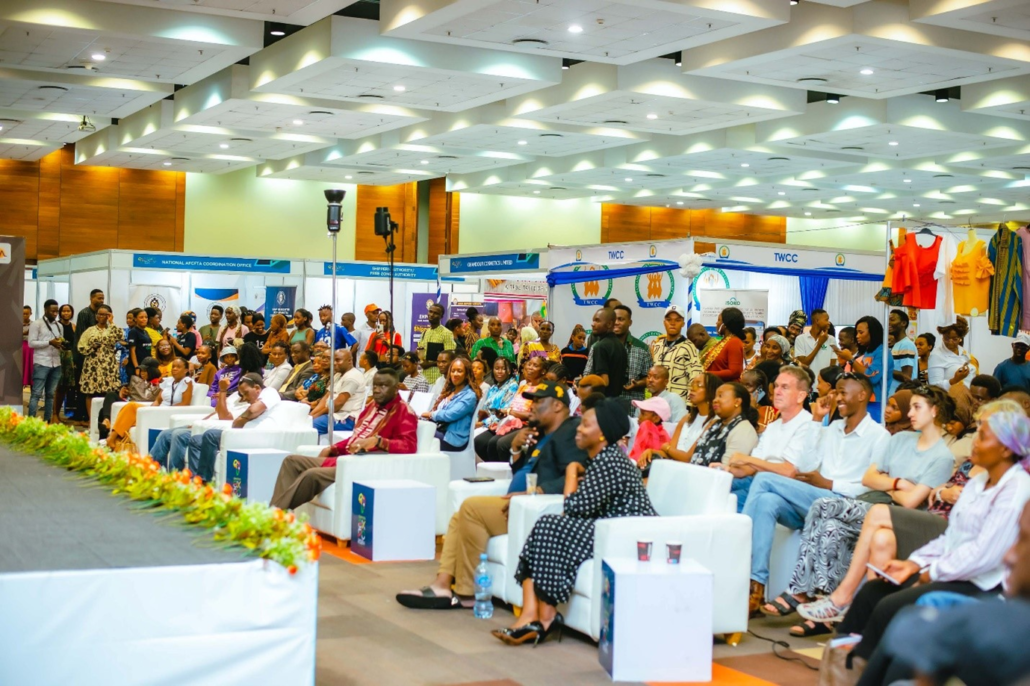
INTRODUCTION
The Ghana Trade Expo, a visionary initiative launched under the auspices of the National AfCFTA Coordinating Office (NCO), an agency under the Ministry of Trade alongside esteemed partners such as Ghana Export Promotion Authority, Ministry of Foreign Affairs and Regional Integration, GIZ, UNDP and the World Bank.
This groundbreaking venture aims not only to foster trade relations between Ghana and its continental counterparts within the African Continental Free Trade Area (AfCFTA) framework but also to solidify Ghana’s position as a premier trading hub.
The objectives are to showcase Ghanaian businesses and products across various sectors to specific markets, pinpoint potential value chain prospects, enhance the Made in Ghana brand’s visibility in African sub-regions, and foster trade and investment partnerships between Ghanaian enterprises and African counterparts through targeted business-to-business interactions.
Dataware Tech was honored to be engaged as a data analytics service provider for this event.
WHAT WAS THE CHALLENGE?
A major concern for NCO was the registration process for participants, spanning buyers, visitors, partners, officials, and exhibitors. Additionally, NCO was looking to support exhibitors effectively networking with participants and accurately recording their business-to-business transactions, sales, and inquiries. Recognizing the need for streamlined data management, the National Coordinating Office (NCO) engaged Dataware Tech’s expertise to collect, store, and model data for real-time insights.
The NCO required a streamlined process to enable the team to gauge economic activity at the event in real-time.
OUR SOLUTION
PART 1: Registration and Data Collection


The web app aimed to streamline the registration process for a variety of participant categories, including exhibitors, organizers, speakers, partners, visitors (buyers), and media representatives. It consisted of an exhibitor portal and an admin portal, each serving distinct purposes to enhance the overall event experience.
The main center for controlling users and events was the Admin Portal. Under an active event, administrators could manage the registration of companies as exhibitors, organizers, partners, and individual participants. This centralized strategy made sure that all the many parts of the event were efficiently managed and coordinated.
By adding companies to the list of exhibitors at events, administrators made it easier for them to be included. In exchange, exhibitors gave useful information on their company and delegates, facilitating effective data collection, productive networking, and communication.
A user-friendly interface was made available to visitors (buyers) and media representatives giving them the option to register on their own or get registered at the event registration desk. An API connection between the event registration portal and the NCO website enabled visitors to seamlessly access the self-registration feature directly from the NCO website. This integration enhanced the visitor experience by providing a user-friendly registration process, ensuring real-time data synchronization between the registration portal and the NCO website for improved event management.
A user-friendly interface was made available to visitors (buyers) and media representatives giving them the option to register on their own or get registered at the event registration desk.
An API connection between the event registration portal and the NCO website enabled visitors to seamlessly access the self-registration feature directly from the NCO website. This integration enhanced the visitor experience by providing a user-friendly registration process, ensuring real-time data synchronization between the registration portal and the NCO website for improved event management.
All participants could scan QR codes of other participants to obtain contact information of effective networking.
Participants were given tags printed with their name, participant category, a unique QR code, and their event interests when they checked in at the registration desk. The event experience was personalized, and guests were managed more effectively thanks to the expedited check-in procedure.
PART 2: Dashboard
The dashboard report involved meticulous data collection crucial for understanding participant demographics, interests, and engagement at the event through the NCO Registration portal which served as the primary platform for participant registration during the Trade Expo. This data formed the basis for analysis, highlighting the event’s impact on Ghana’s trade relations within Tanzania and across Africa.
To ensure data accuracy and completeness, rigorous validation procedures were implemented. This data was then processed through a data pipeline, which involved the extraction, transformation, and loading (ETL) of data from the registration portal to the data warehouse. By automating data ingestion and processing tasks, the pipelines facilitated real-time data flow.
The data warehouse served as a central repository for all Expo-related data, allowing for efficient storage and retrieval. This data warehouse enabled the creation of dynamic datasets used for the analysis and reporting, providing valuable insights into the Expo’s impact and participant engagement.
The dashboard, enriched with a variety of KPIs, provided stakeholders with actionable insights into the Expo’s performance and impact. These KPIs included metrics such as total sales volume, sales value, number of B2B engagements, and demographic distribution of participants. Graphical representations, such as pie charts and bar graphs, visualized these KPIs, enabling stakeholders to quickly grasp key trends and patterns.

The integration of the NCO Registration portal, data pipeline, and data warehouse had an immediate and transformative impact on the Ghana Trade Expo – Tanzania 2024. This comprehensive solution streamlined the registration process, saving time for participants and organizers. It also facilitated efficient data collection, processing, and analysis, contributing to the event’s success and generation of valuable insights. Exhibitors benefited from easier connections with potential partners and improved interaction logging, leading to increased business opportunities. The detailed analytics provided by our dashboards offered NCO valuable insights into visitor demographics, exhibitor performance, and sales and engagement metrics, enabling informed decision-making and event optimization.

CONCLUSION
Our collaboration with NCO Market Entry Expedition marks a significant milestone in the journey of trade promotion. By leveraging technology to streamline event management and data analysis, we have not only facilitated a more efficient trade fair experience but also contributed to positioning Ghana as a leading trading partner under the AfCFTA framework. As we continue to innovate and enhance our solutions, we look forward to further empowering the trade expo and driving continued success in the promotion of trade and economic growth.

Dataware is a tech company made up of creative minds on a mission to assist organizations in Africa gain actionable insight from data for strategic decision making on the go.

